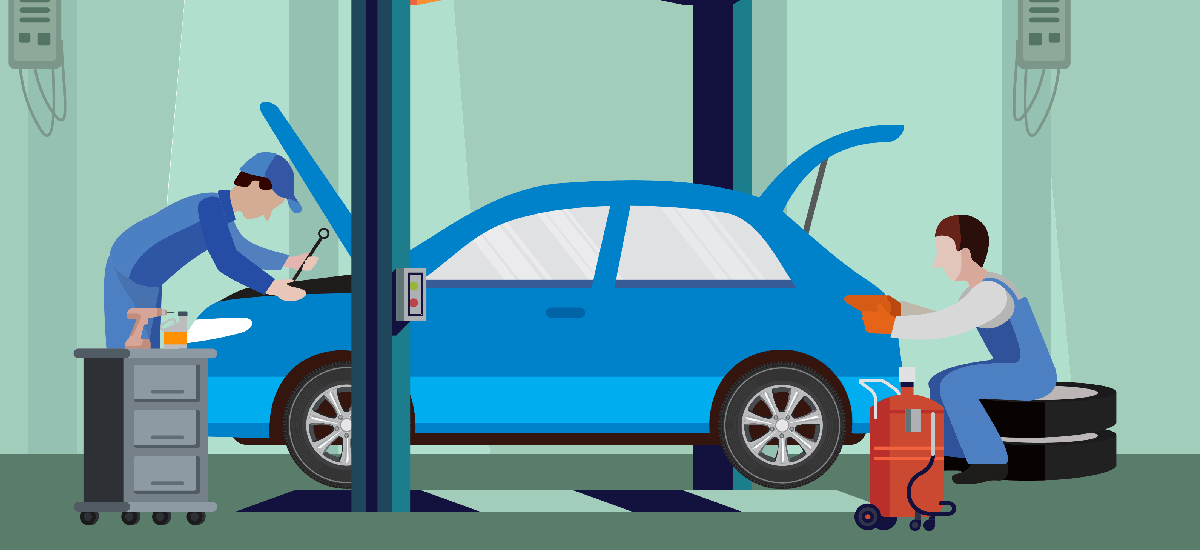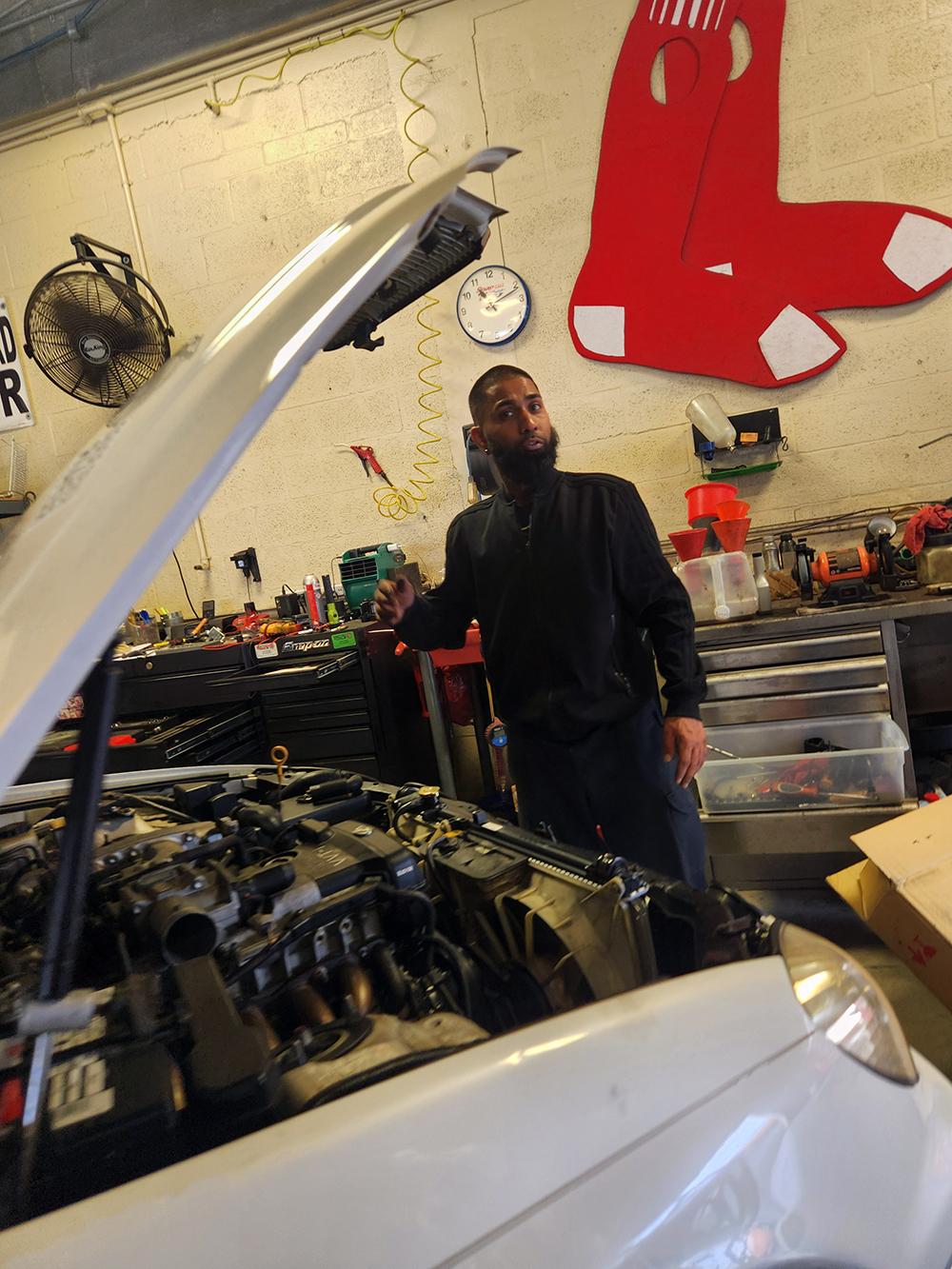All Categories
Featured

When it concerns cars and truck ownership, understanding the distinction between regular repair and maintenance is vital for both the longevity of your vehicle and your budget plan. While both are essential for keeping your cars and truck in great working problem, they offer distinct objectives and require different strategies. Below's a break down of what each term means, exactly how they vary, and why both are necessary for your lorry.
Regular Upkeep: Maintaining Your Cars And Truck in Tip-Top Forming. Routine maintenance refers to the routine, scheduled solutions that are essential to maintain your car running smoothly and to stop more severe problems from occurring. These jobs are usually described in your automobile's owner manual and are created to address the wear and tear that naturally accompanies day-to-day use. Routine maintenance helps to capture minor issues before they come to be significant issues, expanding the life of your car and improving its overall performance.
Some usual examples of regular maintenance include:
Oil Changes: Normal oil adjustments are important to keep your engine lubed and running efficiently. A lot of vehicles require an oil modification every 3,000 to 5,000 miles, though newer designs might go much longer between adjustments. Tire Rotation: To guarantee also tire wear and expand the life of your tires, regular tire rotations are needed, commonly every 6,000 to 8,000 miles. Brake Inspections: Checking the brake pads, liquid levels, and general braking system helps guarantee your security and protects against costly repair work. Air Filter Replacement: The air filter maintains dirt and debris from entering your engine, and replacing it consistently ensures your engine runs efficiently. Liquid Checks: Checking and rounding off liquids such as coolant, transmission fluid, and power steering liquid is component of routine upkeep. These services are positive and help keep your vehicle in excellent functioning problem, but they don't entail taking care of any particular malfunctions or malfunctions.
Repair Works: Fixing Issues That Have Actually Already Occurred. Repairs, on the other hand, are required when something on your vehicle breaks, puts on out, or breakdowns. Unlike routine maintenance, repair services address particular problems that have actually already occurred and usually call for even more time, expense, and labor. The demand for repair work usually arises when a part of your vehicle fails to perform as it should, bring about damaged performance or safety issues.
Some examples of car repair work include:

Engine or Transmission Repairs: If your engine or transmission starts to have concerns, you may experience troubles like stalling, inadequate velocity, or odd sounds. These major repairs can be costly, but they are frequently needed for your automobile to run effectively. Brake Fixes: While brake evaluations belong to routine upkeep, a brake repair may be needed if the brake pads are used out or the brake lines are harmed. Suspension or Guiding Repair Services: If you notice issues with handling, such as drawing away or uncommon resonances, your suspension or steering parts might need to be fixed or changed. Battery Replacement: If your battery is no much longer holding a fee or revealing indicators of failure, it will certainly require to be changed. Repair work are usually much more pricey than routine maintenance, as they frequently include replacing or repairing components that have actually currently failed. While repair work can not constantly be predicted, staying on top of regular upkeep can aid protect against some significant malfunctions.
Key Distinctions. Timing: Regular upkeep is planned and occurs at normal intervals, whereas repair services are typically unintended and take place when something goes wrong. Expense: Maintenance is generally less costly, as it includes preventative measures, while fixings can be pricey due to the complexity of repairing a damaged component or system. Function: Upkeep intends to stop future issues and preserve optimal performance, while repair work repair issues that have actually currently happened. Regularity: Routine maintenance is a constant part of auto ownership, while repair services are typically less constant however much more urgent when needed. Why Both Are essential. Routine repair and maintenance are both necessary to maintaining your auto in excellent form. Routine maintenance lowers the possibilities of requiring significant repair services by recognizing possible issues early, saving you money and time in the future. By staying on top of your cars and truck's maintenance schedule and addressing repairs when essential, you can ensure your lorry stays dependable, safe, and cost-efficient.
While routine maintenance can help stop some repair services, it is necessary to recognize that repairs are occasionally unpreventable, specifically as a vehicle ages. That's why having actually a relied on auto mechanic to handle both regular maintenance and fixings is key to keeping your cars and truck running efficiently throughout its life expectancy.
In verdict, while regular upkeep is everything about prevention and regular care, fixings are about fixing the unanticipated troubles that occur. By recognizing the distinction and dealing with both elements of car treatment, you can make certain that your lorry stays in top form for several years ahead.
Latest Posts
Quick Car Repair Solutions - Reserve Your Spot with Montclare Auto Repair Right Away
Published Apr 19, 25
2 min read
Full Circle Strategic Marketing - Achieve More with Our Trusted Agency for Maximum Impact
Published Apr 19, 25
2 min read
Full Circle Strategic Marketing - Expand Inbound Leads with Tailored Marketing Strategies
Published Apr 19, 25
2 min read
More
Latest Posts
Quick Car Repair Solutions - Reserve Your Spot with Montclare Auto Repair Right Away
Published Apr 19, 25
2 min read
Full Circle Strategic Marketing - Achieve More with Our Trusted Agency for Maximum Impact
Published Apr 19, 25
2 min read
Full Circle Strategic Marketing - Expand Inbound Leads with Tailored Marketing Strategies
Published Apr 19, 25
2 min read